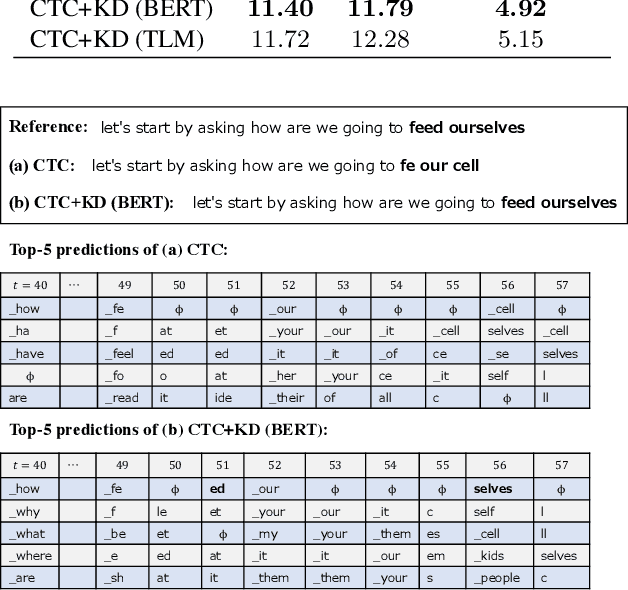Distilling the Knowledge of BERT for CTC-based ASR
Paper and Code
Sep 05, 2022



Connectionist temporal classification (CTC) -based models are attractive because of their fast inference in automatic speech recognition (ASR). Language model (LM) integration approaches such as shallow fusion and rescoring can improve the recognition accuracy of CTC-based ASR by taking advantage of the knowledge in text corpora. However, they significantly slow down the inference of CTC. In this study, we propose to distill the knowledge of BERT for CTC-based ASR, extending our previous study for attention-based ASR. CTC-based ASR learns the knowledge of BERT during training and does not use BERT during testing, which maintains the fast inference of CTC. Different from attention-based models, CTC-based models make frame-level predictions, so they need to be aligned with token-level predictions of BERT for distillation. We propose to obtain alignments by calculating the most plausible CTC paths. Experimental evaluations on the Corpus of Spontaneous Japanese (CSJ) and TED-LIUM2 show that our method improves the performance of CTC-based ASR without the cost of inference speed.
 Add to Chrome
Add to Chrome Add to Firefox
Add to Firefox Add to Edge
Add to Edge